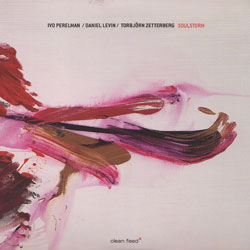
Saxophonist Ivo Perelman in a trio with cellist Daniel Levin and bassist Torbjorn Zetterberg, impressionist and lyrical free playing in a uniquely textured chamber jazz.
Out of Stock
Quantity in Basket: None
Log In to use our Wish List
Shipping Weight: 3.00 units
Sample The Album:
Ivo Perelman-tenor saxophone
Daniel Levin-cello
Torbjorn Zetterberg-doublebass
Click an artist name above to see in-stock items for that artist.
UPC: 5609063001846
Label: Clean Feed
Catalog ID: CF184
Squidco Product Code: 13042
Format: CD
Condition: New
Released: 2010
Country: Portugal
Packaging: Cardstock Gatefold Sleeve
Recorded April 18, 2009 at CAE Portalegre by Ricardo Dias and Joao P. Miranda.
"Soulstorm is a remarkable joint venture between gifted saxophonist Ivo Perelman, and two of the most distinguished string players around, cellist Daniel Levin and double bassist Torbjorn Zetterberg. Taking its title from a book by Brazilian writer Clarice Lispector, Soulstorm confirms the universality of jazz as a language for all nations in the global age. This is a transnational trio in every aspect of the music heard in this double album - the musicians converse fluently with one another, but each with his own accent and dialect.
Like Charles Gayle before him, Perelman reinterprets for today the same concept that John Coltrane and Albert Ayler had for the tenor saxophone: to employ this reed instrument as the ideal vehicle for the most visceral of expressions, even when sublimated by deeply spiritual states. Perelman's intrinsic connection to Abstract Expressionism can be felt in his music, and evidenced visually also through his work as a painter (his other artistic vocation), though this Brazilian in New York adds hot and bright tropical colors to the traditional palette of color and sound.
This recording expands the direction that Perelman has established on prior recordings: to adopt the aesthetic purposes of The New Thing, while simultaneously adding his own unique voice to the continuum of the tradition to which he belongs. The "scream" may be the most immediately obvious characteristic of Perelman's personal style, but similarly to Gayle, Coltrane and Ayler, this cry is not to be construed as a manifestation of rage. In his music, lyricism obtains a grainy texture and an immediacy that the 19th century Romantics couldn't have imagined possible. The sounds emanate from the deepest recesses of both soul and body, and in that sense they reflect an enormous humanity. Evocations of bossa nova and choro emerge from Perelman's interactions with Levin and Zetterberg, adding a special flavor to this free-flowing and open chamber jazz. All of this comes together to make Soulstorm a unique document of rarefied expression; it's the kind of music we all were waiting for."-Clean Feed
Artist Biographies
• Show Bio for Ivo Perelman "Born in 1961 in São Paulo, Brazil, Perelman was a classical guitar prodigy who tried his hand at many other instruments - including cello, clarinet, and trombone - before gravitating to the tenor saxophone. His initial heroes were the cool jazz saxophonists Stan Getz and Paul Desmond. But although these artists' romantic bent still shapes Perelman's voluptuous improvisations, it would be hard to find their direct influence in the fiery, galvanic, iconoclastic solos that have become his trademark. Moving to Boston in 1981, to attend Berklee College of Music, Perelman continued to focus on mainstream masters of the tenor sax, to the exclusion of such pioneering avant-gardists as Albert Ayler, Peter Brötzmann, and John Coltrane (all of whom would later be cited as precedents for Perelman's own work). He left Berklee after a year or so and moved to Los Angeles, where he studied with vibraphonist Charlie Shoemake, at whose monthly jam sessions Perelman discovered his penchant for post-structure improvisation: "I would go berserk, just playing my own thing," he has stated. Emboldened by this approach, Perelman began to research the free-jazz saxists who had come before him. In the early 90s he moved to New York, a far more inviting environment for free-jazz experimentation, where he lives to this day. His discography comprises more than 50 recordings, with a dozen of them appearing since 2010, when he entered a remarkable period of artistic growth - and "intense creative frenzy," in his words. Many of these trace his rewarding long-term relationships with such other new-jazz visionaries as pianist Matthew Shipp, bassists William Parker, guitarist Joe Morris, and drummer Gerald Cleaver. Critics have lauded Perelman's no-holds-barred saxophone style, calling him "one of the great colorists of the tenor sax" (Ed Hazell in the Boston Globe); "tremendously lyrical" (Gary Giddins); and "a leather-lunged monster with an expressive rasp, who can rage and spit in violence, yet still leave you feeling heartbroken" (The Wire). Since 2011, he has undertaken an immersive study in the natural trumpet, an instrument popular in the 17th century, before the invention of the valve system used in modern brass instruments; his goal is to achieve even greater control of the tenor saxophone's altissimo range (of which he is already the world's most accomplished practitioner). Perelman is also a prolific and noted visual artist, whose paintings and sketches have been displayed in numerous exhibitions while earning a place in collections around the world." ^ Hide Bio for Ivo Perelman • Show Bio for Daniel Levin "Daniel Levin is "one of the outstanding cellists working in the vanguard arena" (All About Jazz), "ridiculously fluent, virtually overflowing with ideas" (New York City Jazz Record) and "very much the man to watch." (Penguin Guide to Jazz). No matter what setting he plays in, cellist Daniel Levin occupies a musical space bordered by many kinds of music, but fully defined by none of them. "Demonstrating an impressive breadth of texture and contrast, the cellist Daniel Levin comes well prepared for a career in jazz's contemporary avant-garde." (Nate Chinen, The New York Times). Elements of European classical music, American jazz, microtonal and new music, and European free improvisation all figure prominently in his unique sound. As critic John Sharpe observes in The New York City Jazz Record, "he invokes all manner of musics with prodigious skill: jazz, classical, improv, noise, vocal chorus. His technique is unquestioned and he revels in the physicality of the instrument. Those with an adventurous streak or interest in the outer reaches of the cello universe will find much to savor." Born in Burlington, Vermont, he began playing the cello at the age of six. In 2001, he graduated with a degree in Jazz Studies from the New England Conservatory of Music, and arrived on New York City jazz scene shortly therafter. Since then, Daniel has developed his own unique voice as a cellist, improviser, and composer. Ed Hazell noted upon release of Levin's first record as a leader, "Cellist Daniel Levin is a major new voice on his instrument and in improvised music." He has performed and/or recorded with Billy Bang, Borah Bergman, Tim Berne, Anthony Braxton, Gerald Cleaver, Andrew Cyrille, Mark Dresser, Ingebrigt Haker Flaten, Tony Malaby, Mat Maneri, Joe Morris, William Parker, Ivo Perelman, Warren Smith, Ken Vandermark, and many others. Daniel is the recipient of a 2010 Jerome Foundation award." ^ Hide Bio for Daniel Levin • Show Bio for Torbjorn Zetterberg "Torbjörn Zetterberg (born 10 May 1976) is a Swedish jazz musician (double bass) and composer, known from collaborations with Jonas Kullhammar. Zetterberg attended Södra Latin och Fridhems Folkhögskola in Svalöv but was first recognised as bassist when he studied at Kungliga Musikhögskolan in Stockholm still very young. Here he studied bass under guidance of Jan Adefelt. Soon he joined drummer Fredrik Norén's band together with the saxophonist Jonas Kullhammar. Already at this point one could sense that he would become a prominent figure in the Swedish jazz scene. Now his name is firmly rooted in the vibrant progressive selection as the new jazz generation. He went through a personal crisis and did not record as a bandleader for more than seven years. Zetterberg was uncomfortable with his career and in 2010 he decided to leave the urban life including his bass, and moved to a Buddhist temple. There he resided for a year and still spends half of his time there in 2016. This existential crisis led to the production of the album Och Den Stora Frågan ("And the Big Question" in Swedish) in 2014. Here he collaborated with well known musicians from his earlier career, like the Portuguese trumpeter Susana Santos Silva and drummer Jon Fält, known from albums with pianist Bobo Stenson's trio. The album is "charged with joyful urgency, shiny optimism and confident flowing energy, despite the doubts and uncertainties that accompany any creative, artistic process", the reporter of All About Jazz stated in 2014." ^ Hide Bio for Torbjorn Zetterberg
11/18/2024
Have a better biography or biography source? Please Contact Us so that we can update this biography.
11/18/2024
Have a better biography or biography source? Please Contact Us so that we can update this biography.
11/18/2024
Have a better biography or biography source? Please Contact Us so that we can update this biography.
Track Listing:
Disk 1:
1. Soulstorm 9:22
2. Footsteps 8:20
3. Pig Latin 8:38
4. The Body 14:16
5. Day by Day 11:57
6. Explanation 9:17
Disk 2:
1. Plaza Maua 24:34
2. Dry Point Of Horses 13:30
3. A Manifesto Of The City 12:58
4. The Way Of The Cross 10:37
5. In Search Of Dignity 6:48
Clean Feed
Improvised Music
Jazz
NY Downtown & Metropolitan Jazz/Improv
Trio Recordings
Chamber Jazz
Search for other titles on the label:
Clean Feed.



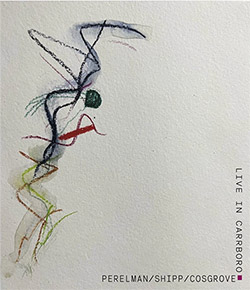
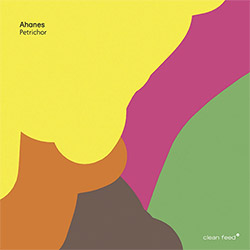

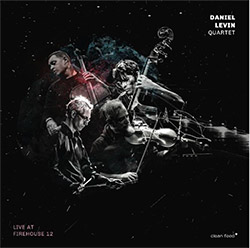
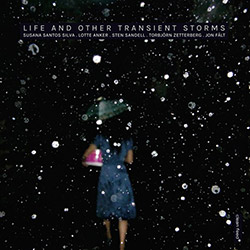



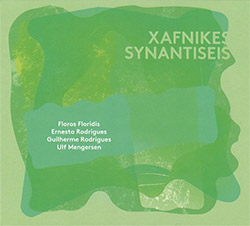
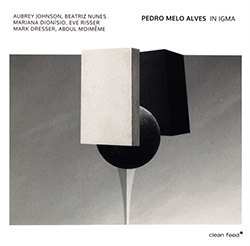
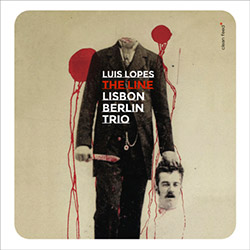
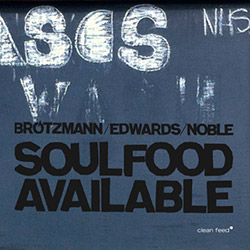



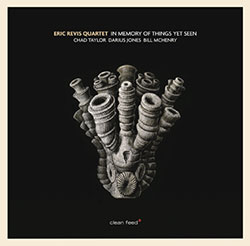

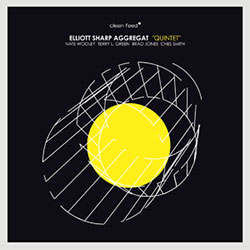

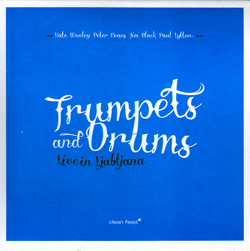

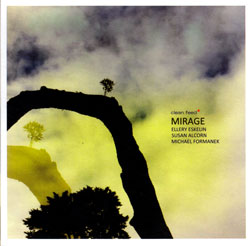
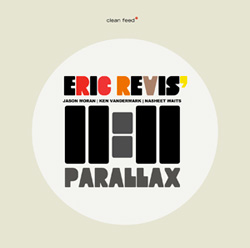
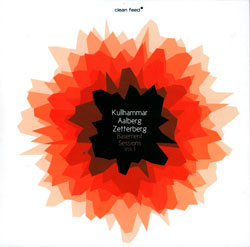
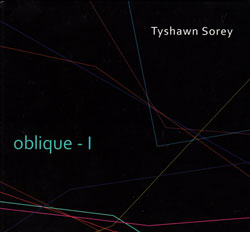














![Barker / Parker / Irabagon: Bakunawa [VINYL]](https://www.teuthida.com/productImages/misc4/35533.jpg)
![Blaser, Samuel / Marc Ducret / Peter Bruun: Dark Was The Night, Cold Was The Ground [VINYL 10-inch]](https://www.teuthida.com/productImages/misc4/35492.jpg)










![Warren, Kenny (Warren / Hoffman / Ellman): Sweet World [VINYL]](https://www.teuthida.com/productImages/misc4/35451.jpg)


![Blake, Ran / Dave Knife Fabris: Live Amsterdam 2006, First Visit [CD + POSTCARDS]](https://www.teuthida.com/productImages/misc4/35275.jpg)
![Sanna, Claudio: Compositori Sardi Contemporanei II [2 CDs]](https://www.teuthida.com/productImages/misc4/35317.jpg)












![Nevai, Nandor: <<The PRICE of FRONTIER>> Book 1: FULK [BOOK + 4 CDs]](https://www.teuthida.com/productImages/misc4/35464.jpg)
![Nevai, Nandor: <<The PRICE of FRONTIER>> Book 2: MARTIAL [BOOK + 4 CDs]](https://www.teuthida.com/productImages/misc4/35465.jpg)
![Nevai, Nandor: <<The PRICE of FRONTIER>> Book 3: JASSOM [BOOK + 4 CDs]](https://www.teuthida.com/productImages/misc4/35466.jpg)
![Nevai, Nandor: <<The PRICE of FRONTIER>> Book 4: HARD-WON [BOOK + 4 CDs]](https://www.teuthida.com/productImages/misc4/35467.jpg)






![DNS: Taking Big Bites Of The Khandas Three Cafes Deep [2 CDs]](https://www.teuthida.com/productImages/misc4/35334.jpg)




![Cleaver, Gerald: The Process [VINYL]](https://www.teuthida.com/productImages/misc4/34966.jpg)




![Alva Noto: HYbr:ID II [VINYL 2 LPs]](https://www.teuthida.com/productImages/misc4/35201.jpg)

![Baron, Derek / Luke Martin: Distinct and Concealed [CASSETTE + DOWNLOAD]](https://www.teuthida.com/productImages/misc4/35079.jpg)

![Lyle, Erica Dawn : Colonial Motels [CASSETTE + DOWNLOAD]](https://www.teuthida.com/productImages/misc4/35080.jpg)







![Alva Noto: HYbr:ID III [VINYL 2 LPs]](https://www.teuthida.com/productImages/misc4/35011.jpg)
![Kubisch, Christina / Trondheim Voices: Stromsanger 2022 For Six Voices And Electromagnetic Waves [VINYL]](https://www.teuthida.com/productImages/misc4/34628.jpg)








![Zurria, Manuel: Fame di Vento [3 CDs]](https://www.teuthida.com/productImages/misc4/35167.jpg)

![Granberg, Magnus / Nattens Inbrott / Skogen: Holde Traume, Kehret Wieder! [2 CDs]](https://www.teuthida.com/productImages/misc4/35038.jpg)
![Frey, Jurg: Outermost Melodie [2 CDs]](https://www.teuthida.com/productImages/misc4/35039.jpg)

![Pavone, Jessica: Reverse Bloom [VINYL]](https://www.teuthida.com/productImages/misc4/34895.jpg)




![Modney (Modney / Wooley / Gentile / Roberts / Pluta / Symthe / ...): Ascending Primes [2 CDs]](https://www.teuthida.com/productImages/misc4/34852.jpg)








![Elephant9 with Terje Rypdal: Catching Fire [VINYL 2 LPs]](https://www.teuthida.com/productImages/misc4/35355.jpg)
![Deerlady (Obomsawin, Mali / Magdalena Abrego): Greatest Hits [VINYL]](https://www.teuthida.com/productImages/misc4/34876.jpg)




![Haino, Keiji: Black Blues [2 CDs]](https://www.teuthida.com/productImages/misc4/35109.jpg)



![Surplus 1980: Illusion of Consistency [CD]](https://www.teuthida.com/productImages/misc4/35069.jpg)
![Staiano, Moe: Away Towards the Light [VINYL + DOWNLOAD]](https://www.teuthida.com/productImages/misc4/35037.jpg)




![Caveira (Gomes / Sousa / Abras / Ferrandini): Ficar Vivo [VINYL]](https://www.teuthida.com/productImages/misc4/34643.jpg)
![Gregg, J. J. / David Van Auken: Lunar Prairie [CD w/ DOWNLOAD]](https://www.teuthida.com/productImages/misc4/34611.jpg)

![Coultrain: Mundus [VINYL]](https://www.teuthida.com/productImages/misc4/32439.jpg)
![Mattin: Songbook #6 [VINYL]](https://www.teuthida.com/productImages/misc4/27317.jpg)
![Punkappella: Wake Up [7-inch VINYL]](https://www.teuthida.com/productImages/misc4/17519.jpg)
![Residents, The: WARNING: UNiNC.: Live And Experimental Recordings 1971-1972 [VINYL 2 LPs]](https://www.teuthida.com/productImages/misc4/31521.jpg)
![Coultrain: Phantasmagoria [VINYL]](https://www.teuthida.com/productImages/misc4/30142.jpg)
![Lennon, Sean Ono: Asterisms [VINYL]](https://www.teuthida.com/productImages/misc4/34517.jpg)

![Rotem Geffen: The Night Is The Night [VINYL]](https://www.teuthida.com/productImages/misc4/34631.jpg)
![Coley, Byron: Dating Tips for Touring Bands [VINYL]](https://www.teuthida.com/productImages/misc4/17906.jpg)

![Lost Kisses: My Life is Sad & Funny [DVD]](https://www.teuthida.com/productImages/misc4/lostKissesDVD.jpg)